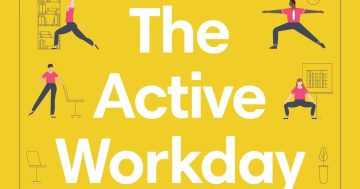 Children’s wellbeing is heightened when they participate in extra-curricular activities, yet lowered when they spend time on social media or playing video games, according to new research from the Department for Education and the University of South Australia (UniSA).
Children’s wellbeing is heightened when they participate in extra-curricular activities, yet lowered when they spend time on social media or playing video games, according to new research from the Department for Education and the University of South Australia (UniSA).
Leading researcher on the study, Research Associate at UniSA, Rosa Virgara said the results highlighted an acute need to encourage children to participate in activities other than screens.
“Whether it’s sports practice, music lessons or a casual catch up with friends, when children are involved in after-school activities, they’re more likely to feel happier and healthier than their counterparts who are glued to a screen,” Dr Virgara said.
She said the study analysed data from 61,759 school students in Years 4 to 9, assessing the average number of days per week children participated in after-school activities (3-6pm), and measured these against wellbeing factors – happiness, sadness, worry, engagement, perseverance, optimism, emotion regulation and life satisfaction.
“Our study highlights how some out-of-school activities can boost children’s wellbeing, while others – particularly screens – can chip away at their mental and physical health,” Dr Virgara said.
“It’s interesting because you might think that it’s the lack of physical movement that’s causing this, yet our research shows that doing homework or reading – both sedentary activities – positively contribute to wellbeing, so it’s something else.”
Dr Virgara said students in lower socio-economic backgrounds who frequently played sport were 15 per cent more likely to be optimistic, 14 per cent more likely to be happy and satisfied with their life, and 10 per cent more likely to be able to regulate their emotions.
She said that conversely, children who played video games and used social media almost always had lower levels of wellbeing: Up to nine per cent less likely to be happy, up to eight per cent less optimism and 11 per cent more likely to give up on things.










